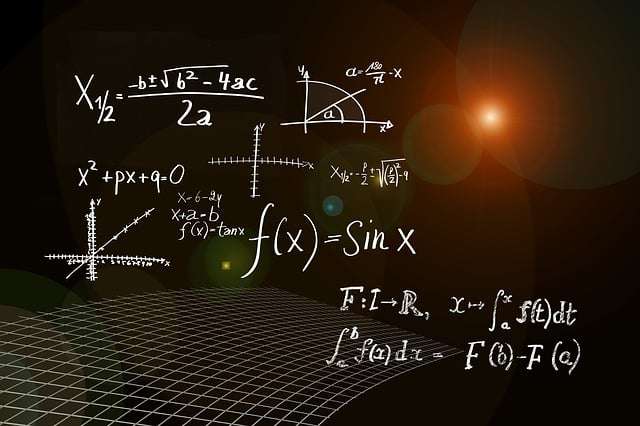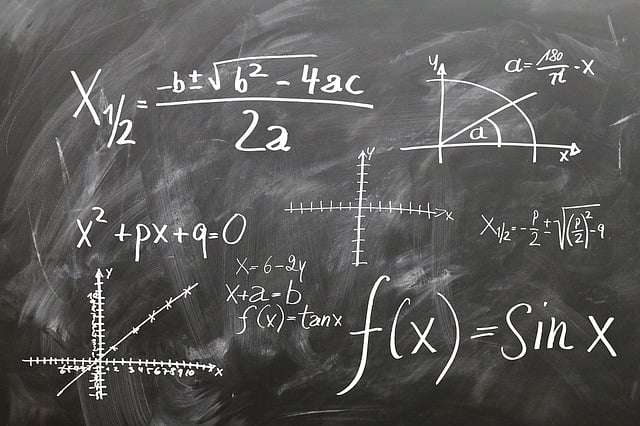Setting the Stage: The Golden Age of Islamic Science

In the Golden Age of Islam, spanning from the 8th to the 14th century, Muslim scientists spearheaded remarkable advancements across various disciplines, fundamentally shaping the course of human knowledge. Among these visionaries were alchemists and mathematicians, whose pioneering work laid the groundwork for modern science. Notable figures such as Jabir ibn Hayyan, known in the Western world as Geber, pioneered experimental techniques in alchemy, propelling the evolution of what we now recognize as chemistry.
The Birth of Algebra: Al-Khwarizmi’s Enduring Legacy.

Muhammad ibn Musa al-Khwarizmi emerges as a towering figure in this epoch, earning the title of the “Father of Algebra” for his groundbreaking contributions. His treatise, “The Compendious Book on Calculation by Completion and Balancing,” introduced systematic methods for solving equations and laid the foundational principles of algebraic manipulation. Al-Khwarizmi’s insights not only revolutionized mathematics but also wielded profound influence across diverse fields, from engineering to economics, leaving an indelible mark on intellectual discourse.
Ibn al-Haytham: A Luminary in Optics.

Ibn al-Haytham, also known as Alhazen, stands as another luminary whose contributions reshaped our understanding of optics and vision. In his seminal work, “Kitab al-Manazir” (Book of Optics), he undertook a comprehensive exploration of light, vision, and ocular anatomy, challenging prevailing Greek theories and advocating for empirical observation. Alhazen’s rigorous methodology laid the groundwork for the scientific method, influencing subsequent generations of thinkers and contributing to the advancement of optics.
The Enduring Impact: Legacy of Muslim Scientists.

The enduring legacy of Muslim scientists from the Golden Age reverberates through the annals of history, testifying to the intellectual vibrancy of Islamic civilization. Figures like Jabir ibn Hayyan, al-Khwarizmi, and Ibn al-Haytham exemplify the spirit of inquiry, innovation, and intellectual rigor that characterized this era. Their trailblazing endeavors not only propelled the frontiers of human knowledge but also fostered a culture of scholarly exchange that transcended geographical and cultural boundaries, leaving an indelible imprint on the tapestry of scientific progress and cultural heritage.
Revolutionizing Medicine: Avicenna’s Contributions to Healing.
Avicenna, also known as Ibn Sina, made significant contributions to medicine during the Golden Age of Islam. His seminal work, “The Canon of Medicine,” became a foundational text in medical education for centuries. Avicenna’s systematic approach to diagnosis, treatment, and pharmacology revolutionized medical practice, influencing scholars and practitioners across the Islamic world and beyond. His emphasis on empirical observation, clinical experience, and holistic healthcare laid the groundwork for modern medical science, earning him recognition as one of history’s most influential physicians.
Advancements in Astronomy: The Legacy of Al-Battani.
Al-Battani, also known as Albategnius, made groundbreaking contributions to astronomy and mathematics during the Islamic Golden Age. His accurate observations of celestial phenomena, including the motion of celestial bodies and the length of the solar year, laid the foundation for advancements in astronomy and navigation. Al-Battani’s astronomical tables and mathematical calculations were instrumental in refining existing astronomical models and improving navigational accuracy, contributing to the flourishing of trade and exploration during the medieval period.
Preservation and Transmission of Knowledge: The Role of Islamic Libraries.
Islamic libraries played a crucial role in preserving and transmitting knowledge during the Golden Age of Islam. Libraries such as the House of Wisdom in Baghdad became centers of learning, attracting scholars from diverse backgrounds and facilitating the translation of ancient texts into Arabic. Through their extensive collections and patronage of scholars, Islamic libraries preserved the intellectual heritage of antiquity and fostered the exchange of ideas between East and West. The dissemination of knowledge from Islamic libraries laid the groundwork for the Renaissance in Europe and the subsequent revival of classical learning.
Influence on European Renaissance: Islamic Intellectual Heritage.
The intellectual achievements of Muslim scientists during the Golden Age of Islam exerted a profound influence on the European Renaissance. The translation movement, which saw the translation of Arabic texts into Latin, reintroduced classical works of philosophy, science, and medicine to European scholars. The ideas and innovations of Muslim scientists, including alchemy, astronomy, and mathematics, provided the intellectual foundation for the Renaissance, stimulating a period of renewed interest in learning, exploration, and discovery in Europe.
Legacy of Scientific Methodology: Contributions to Empirical Inquiry.
Muslim scientists made significant contributions to the development of the scientific method during the Golden Age of Islam. Through their emphasis on empirical observation, experimentation, and logical reasoning, scholars like Ibn al-Haytham laid the groundwork for modern scientific inquiry. The systematic approach to knowledge production pioneered by Muslim scientists revolutionized scientific thought, influencing subsequent generations of scholars and shaping the methodologies of modern science. The legacy of Islamic contributions to empirical inquiry continues to inspire scientists and researchers around the world, highlighting the enduring impact of Golden Age scholars on the pursuit of knowledge.
Cultural Exchange and Translation Movement: Bridging East and West.
One of the most significant legacies of the Golden Age of Islam is the translation movement, which played a pivotal role in bridging the intellectual gap between the Eastern and Western worlds. Islamic scholars undertook the monumental task of translating Greek, Persian, Indian, and other ancient texts into Arabic, preserving and synthesizing knowledge from diverse cultures. These translated works, including those of Aristotle, Plato, Euclid, and Ptolemy, became the foundation of Islamic scholarship and contributed to the advancement of science, philosophy, and literature in the Islamic world.
The Influence of Islamic Art and Architecture: Aesthetic Legacy.
Islamic art and architecture from the Golden Age continue to inspire awe and admiration for their exquisite beauty, intricate designs, and geometric patterns. From the majestic mosques of Cordoba and Istanbul to the ornate palaces of Samarkand and Isfahan, Islamic architecture reflects a rich tapestry of cultural influences and artistic expressions. The use of geometric motifs, arabesques, and calligraphy in Islamic art not only served as a means of embellishment but also conveyed spiritual and philosophical symbolism, enriching the visual landscape of the Islamic world and beyond.
Philosophical Inquiry and Rationalism: Intellectual Contributions.
Islamic philosophers made significant contributions to the fields of philosophy, theology, and metaphysics during the Golden Age. Figures like Al-Farabi, Avicenna, and Averroes engaged in rigorous intellectual inquiry, blending elements of Greek philosophy with Islamic theology and mysticism. Their works explored questions of existence, knowledge, and ethics, laying the groundwork for later philosophical movements in the Islamic world and Europe. The rationalist tradition of Islamic philosophy emphasized the use of reason and logic in understanding the nature of reality, leaving a lasting legacy in the history of thought.
The Spread of Islamic Civilization: Cultural Diffusion and Synthesis.
The Golden Age of Islam witnessed the spread of Islamic civilization across vast territories, from Spain to Central Asia and beyond. Through conquest, trade, and missionary activity, Islamic culture, language, and religion spread to diverse regions, fostering a synthesis of cultural traditions and a sense of shared identity among diverse populations. The exchange of ideas, technologies, and artistic styles enriched local cultures and contributed to the flourishing of urban centers and intellectual hubs throughout the Islamic world. The legacy of Islamic civilization continues to resonate in the cultural heritage and traditions of regions influenced by its historical footprint.
Continued Reverence for Islamic Scholars: Contemporary Impact.
Today, the contributions of Muslim scholars from the Golden Age of Islam are celebrated and revered as foundational pillars of human knowledge and progress. Their legacy continues to inspire scholars, scientists, and artists around the world, serving as a testament to the power of intellect, creativity, and cultural exchange. The enduring impact of Islamic scholars on fields such as science, mathematics, medicine, philosophy, and architecture underscores the universal significance of their achievements and the enduring legacy of the Golden Age of Islam.






